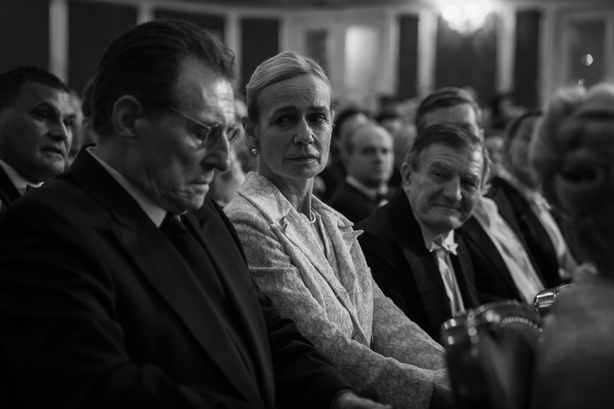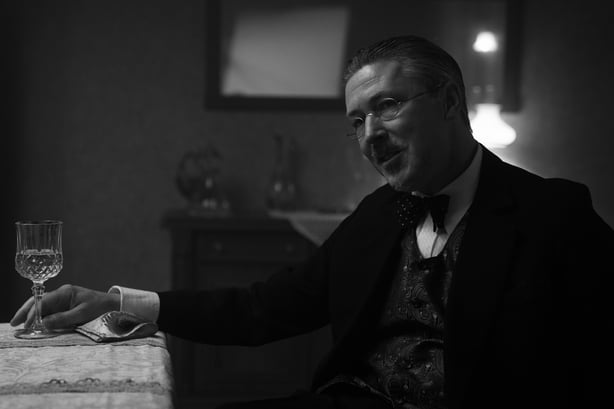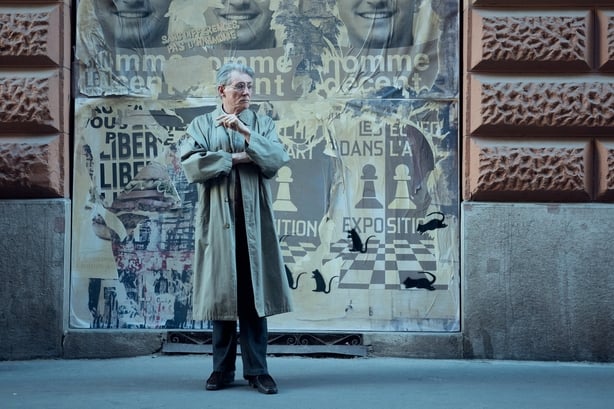There's no faulting Gabriel Byrne’s portrayal of Samuel Beckett in The Theory of Everything director James Marsh’s handsome but meandering movie about the literary giant.
Byrne plays Beckett twice and at the same time - we first meet him in an agitated state at the Nobel Prize for Literature ceremony in 1969. In an artful piece of absurd fantasy, he mounts the stage briskly, snatches the envelope containing the prize money and then climbs a ladder into a cavernous room where he meets an older and more content - or just more resigned - version of himself.
So far, so Sam. Sitting in this Godot-like setting, the two Becketts then haggle over whom he should give his Nobel loot to. It’s a nice device and entrée into the various chapters of the writer’s life - the war of attrition with his frosty mother in the spacious family home in Foxrock; his relationship with James Joyce (Aidan Gillen) in Paris; service with the French Resistance in World War Two; and finally, his tangled romantic life and his reclusive later years as a globally feted literary genius.

By far the most entertaining scenes are set around his strained mentorship with Joyce. The young Beckett, played with intense watchfulness by Fionn O’Shea, inveigles his way into the eccentric Joyce household and the exchanges between master and pupil are sparky and funny.
Gillen is a revelation in his almost villainous portrayal of the older and worldlier man of letters and it would be good to see him reprise the role in a full-scale biopic - along with Bronagh Gallagher, who provides great comic relief here as Nora Barnacle.

However, when Joyce tries to offload his flighty daughter Lucia (a great Gráinne Good) and Beckett spurns her romantic advance, the relationship sours. Later, Beckett’s wife Suzanne (Sandrine Bonnaire) is the dictionary definition of long suffering, while his translator and eventual lover Barbara Bray (Maxine Peake) is underused.
Moody and episodic, the script can be clunky, with characters trading literary aphorisms in the Parisian shadows. The movie is shot in an antiseptic black and white, which tends to make it look like one of those knowingly pretentious perfume ads and Marsh doesn’t quite manage to reconcile the film’s playfulness with its essential tone of austerity.

However, making a movie about Beckett was bound to be a challenge and Byrne is quietly magnificent as the giant of modernism, playing him with a droll fatalism and darts of dark humour.
Alan Corr @CorrAlan2
Dance First is in select Irish cinemas now and will air on Sky Cinema on 14 December













